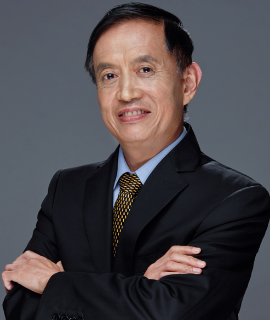Title : Considerations on MS animal modeling: Format of myelin immunogens used for experimental autoimmune encephalomyelitis model establishment may affect pharmacologic responses of anti-inflammatory drugs
Abstract:
Multiple sclerosis (MS) is one of the most common causes of neurological dysfunction representing unmet medical need, which demands novel therapies toward a cure. Experimental autoimmune encephalomyelitis (EAE) is the most commonly used model for studying autoimmune-mediated myelin degradation in MS. The immunological and neurobiological mechanisms underlying the pathogenesis, progression, and prognosis of MS are complicated. Myelin oligodendrocyte glycoproteins (MOG) 35-55 and MOG1-128 are commonly used peptides for EAE model induction and the selection of MOG is often investigator’s preferences. In this presentation, the pharmacologic responses of anti-inflammatory drugs with different mechanisms of actions (MOAs) were evaluated using EAE models induced by either myelin oligodendrocyte glycoprotein MOG35-55 or MOG1-128. The animals with EAE were treated with different anti-MS medications, including three (3) B cell-mediated agents and two (2) T cell-mediated agents, respectively. Clinical symptoms were monitored and scored, and pharmacodynamic markers including cytokine secretion, inflammatory cell infiltration, and demyelination in spinal cord were analyzed. Our results demonstrated that induction of EAE by different myelin antigens resulted in differential pharmacologic responses to drugs with specific MOAs. The MOG35-55-induced EAE model only responded to T cell-modulating drugs, whereas the MOG1-128-induced EAE model exhibited therapeutic sensitivity against both T cell- and B cell-modulating agents. These data suggest the MOG35-55 peptide-induced EAE model is suitable for assessing T cell-modulating agents while MOG1-128-induced model can be employed to evaluate both T cell- and B cell-modulating agents. Due to complex pathogenesis of the disease and interplays between immunological and neurological responses, systematically comparative studies on pharmacological responses of different EAE animal models may shed lights on better understanding of disease biology and provide animal model preference in MS research.
Audience Take Away:
- Explain how the audience will be able to use what they learn? This presentation provides a guidance for researchers on MS preclinical models selection and applications to facilitate MS translational research and drug development process.
- How will this help the audience in their job? Yes, provide better understanding on MS animal modeling and wisely choosing appropriate models.
- Is this research that other faculty could use to expand their research or teaching? Yes.
- Does this provide a practical solution to a problem that could simplify or make a designer’s job more efficient? Yes.


